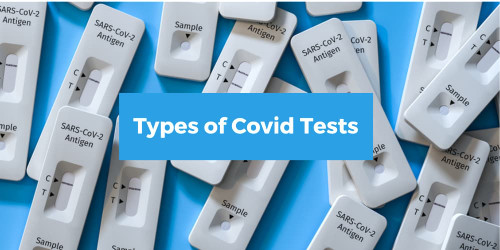Defibrillators Save Lives, but Almost Nobody Has One at Home
In emergencies, every second counts, especially when it comes to life-threatening situations such as sudden cardiac arrest (SCA). SCA can strike anyone, anywhere, at any time, regardless of age or fitness level. Fortunately, defibrillators are powerful devices that can help save lives during such critical moments. While these devices are readily available in hospitals and public places, it is surprising that very few people have them at home, considering their life-saving potential. In this article, we'll explore the importance of defibrillators, their effectiveness in emergencies, and why having one at home can make a significant difference in saving lives.
What is a Defibrillator?
A defibrillator is a medical device used to deliver an electric shock to the heart during cardiac emergencies, particularly when the heart goes into a life-threatening irregular rhythm called ventricular fibrillation. This chaotic rhythm prevents the heart from pumping blood effectively, leading to sudden cardiac arrest. The electric shock from a defibrillator is intended to restore the heart's normal rhythm, allowing it to pump blood again and potentially saving the person's life.
Public Access to Defibrillators
Over the past few decades, there has been a growing awareness of the importance of defibrillators in public places. Airports, schools, shopping malls, and other high-traffic areas are now equipped with automated external defibrillators (AEDs) that are designed to be user-friendly, allowing even untrained individuals to administer lifesaving shocks effectively. The widespread availability of AEDs has significantly increased the chances of survival for SCA victims in these locations.
Why Almost Nobody Has One at Home
While defibrillators are a common sight in public areas, they are almost non-existent in most households. According to studies, the vast majority of cardiac arrests occur at home, where the chances of immediate access to an AED could be the difference between life and death. So, why do so few people have defibrillators at home?
1. Lack of Awareness:
One primary reason for the lack of defibrillators at home is the lack of awareness. Many people may not fully understand the severity of sudden cardiac arrest and the effectiveness of defibrillators in saving lives.
2. Cost:
The cost of defibrillators has been a barrier for many households. In the past, these devices were expensive, making them inaccessible to the average person. However, the prices have decreased over time, and there are now more affordable options available.
3. Fear of Usage:
Some people may feel intimidated by the idea of using a defibrillator, fearing that they might cause harm or use it incorrectly. Training and education can help address these concerns and empower individuals to use defibrillators effectively.
Why Every Home Should Have a Defibrillator
Having a defibrillator at home can be a crucial addition to your first aid kit. Here's why:
1. Immediate Response:
In cases of sudden cardiac arrest, every second counts. Having a defibrillator at home ensures that life-saving treatment can be administered immediately before emergency services arrive.
2. User-Friendly Devices:
Modern defibrillators, especially AEDs, are designed to be user-friendly and provide clear, step-by-step instructions for proper use. Even individuals with no medical training can use them effectively.
3. Safety Net for Loved Ones:
Sudden cardiac arrest can strike anyone, including family members, friends, or guests at home. Having a defibrillator readily available increases their chances of survival if an emergency occurs.
Why Every Home Should Have a Defibrillator
A home defibrillator is a life-saving device every family should consider. Sudden cardiac arrest can strike anyone, anytime, and having a defibrillator for home could mean the difference between life and death. Families with a history of heart conditions, elderly members, or active individuals at risk of heart stress benefit greatly from having a personal defibrillator on hand. Imagine responding instantly to a loved one’s cardiac emergency instead of waiting precious minutes for help.
Did you know AEDs (Automated External Defibrillators) are mandatory in buildings with 200+ occupants and are increasingly common in schools, gyms, and offices? Why not prioritize the safety of your home as well?
At MedCart, we offer a selection of high-quality AEDs and defibrillators home solutions. Protect your loved ones and make this essential investment today. Explore our range here: MedCart AEDs and Defibrillators.
Conclusion
Defibrillators are remarkable devices that have the potential to save countless lives during cardiac emergencies. While they are commonly found in public places, their scarcity in households is concerning, especially considering that most cardiac arrests occur at home. By raising awareness about the importance of defibrillators and addressing common misconceptions, we can encourage more people to consider having these life-saving devices in their homes. Taking this simple step can turn an ordinary household into a safety net that could mean the difference between life and death in a critical moment. Let's strive to make defibrillators as common in homes as they are in public places and empower everyone to be a potential lifesaver.















